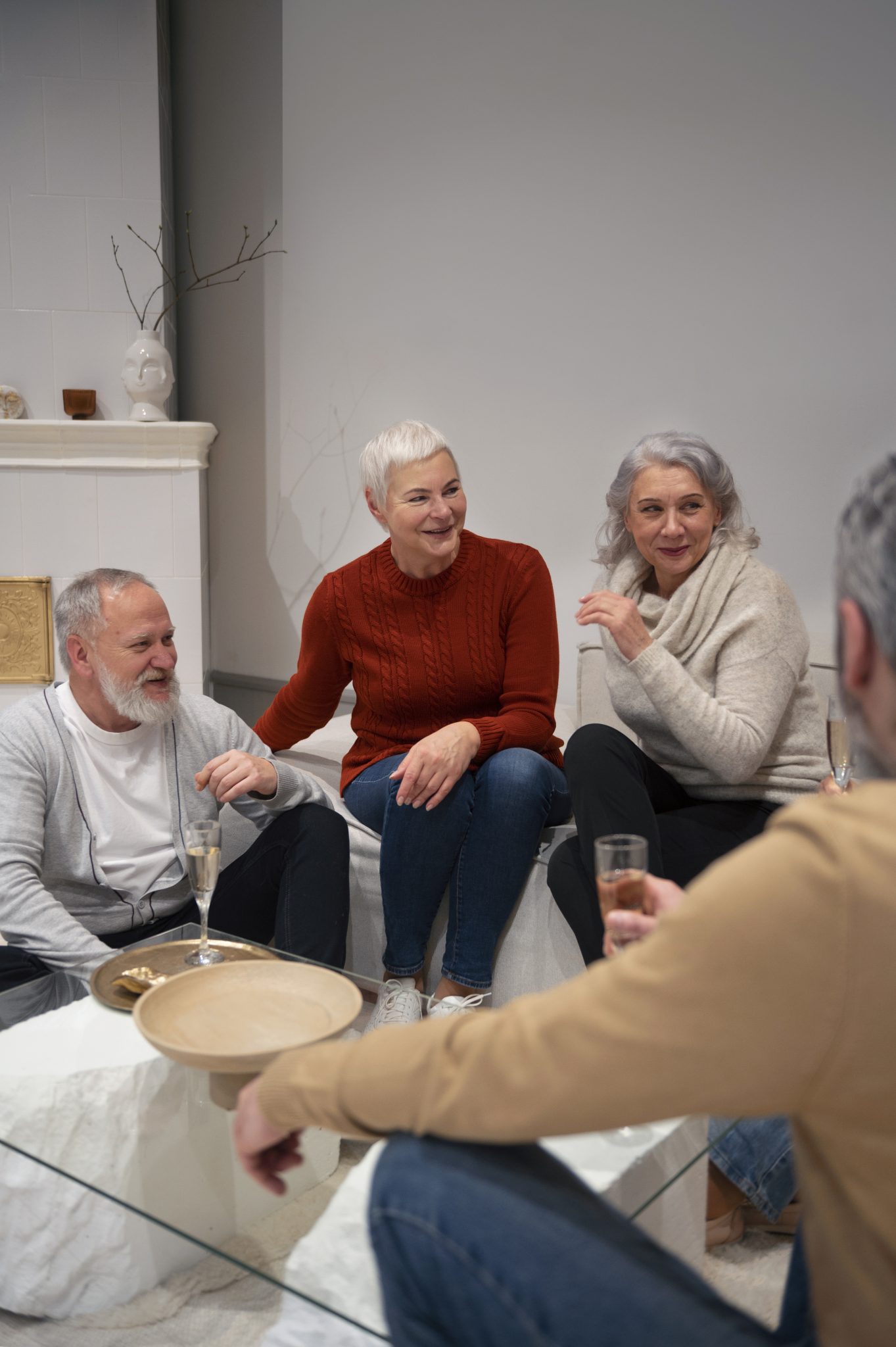As people age, mental and emotional health becomes just as important as physical well-being. Seniors face a unique set of challenges, from dealing with health issues and loss of loved ones to adjusting to lifestyle changes like retirement or mobility limitations. This can lead to feelings of loneliness, anxiety, and sometimes depression. Caregivers play an essential role in supporting seniors through these changes and promoting a positive outlook on life. Here are some effective strategies for caregivers to enhance the mental and emotional well-being of their loved ones.
Encourage Social Connection
Social interaction is key to mental health at any age, but it’s especially important for seniors, who may experience feelings of isolation. Caregivers can help by arranging regular social activities. This might include family gatherings, video calls with distant relatives, or visits with friends. For seniors who are more comfortable in smaller settings, regular outings for a coffee, a walk, or even shopping can provide valuable interaction and a sense of connection.
Local community centers and senior groups often offer activities tailored to older adults, such as exercise classes, book clubs, or craft sessions. In-home caregivers, such as those from Senior Helpers, can facilitate these connections by accompanying seniors to events or arranging visits with friends, helping reduce isolation and increase social engagement.
Promote Physical Activity
Physical activity is not only good for the body but also for the mind. Studies have shown that regular exercise releases endorphins, the body’s natural mood boosters, and can help reduce anxiety and depression. Caregivers can encourage seniors to engage in gentle physical activities, such as walking, swimming, or chair exercises, which are accessible and enjoyable for many seniors.
Exercise classes specifically designed for older adults can provide both physical benefits and social interaction. Even simple stretching or balance exercises at home can make a significant difference in mood and energy levels. With consistency, seniors often feel a renewed sense of independence and vitality, which positively impacts their emotional well-being.
Foster Mental Stimulation
Keeping the mind active is crucial for cognitive health and emotional resilience. Caregivers can help seniors engage in mentally stimulating activities like puzzles, reading, or learning a new skill, which all provide mental exercise. Activities such as playing cards, board games, or even participating in brain-training apps can be enjoyable ways to keep the mind sharp and reduce feelings of boredom.
Creative pursuits, like painting or crafting, are excellent for cognitive engagement as well. Such activities not only provide mental stimulation but also a sense of accomplishment, which can boost self-esteem and emotional health. Encouraging seniors to participate in these activities can help them maintain a positive outlook and give them something to look forward to each day.
Create a Routine
A daily routine can be incredibly helpful for seniors, providing a sense of stability and control. By establishing consistent daily activities, caregivers can help their loved ones feel grounded and focused. Simple routines—such as having breakfast at the same time, going for a walk, or reading a book in the afternoon—can create structure, reducing feelings of anxiety and promoting a sense of purpose.
Additionally, routines provide reassurance and make it easier for caregivers to identify any unusual behaviors or signs of mental distress. For seniors dealing with memory issues, routines can also be helpful in supporting day-to-day memory function, making daily tasks less stressful.
Practice Active Listening and Empathy
Listening with empathy can make a big difference in the mental health of seniors. Many seniors may feel hesitant to express their feelings, fearing they might be a burden. Caregivers can create a supportive environment by being patient, nonjudgmental, and genuinely interested in their loved ones’ thoughts and experiences. Allowing seniors to express their fears, hopes, and memories without interruption can be incredibly healing.
Active listening shows respect for their perspective and can make them feel valued and heard. It also provides caregivers with insight into any emotional issues or anxieties that may need further support. Building this kind of trusting relationship can be a powerful factor in promoting emotional well-being.
Support Independence
Maintaining a sense of independence can greatly improve a senior’s self-worth and emotional health. Caregivers should encourage seniors to perform tasks they’re capable of doing on their own, even if it takes a little extra time. Whether it’s preparing a simple meal, tending to a garden, or choosing what to wear each day, these small moments of self-sufficiency foster confidence and prevent feelings of helplessness.
Home care providers, like Senior Helpers, understand the importance of respecting a senior’s independence while providing support as needed. Caregivers can work with seniors to strike a balance between assistance and autonomy, ensuring that seniors feel capable and dignified in their everyday lives.
Encourage Positivity and Purpose
Having a sense of purpose is essential for emotional well-being. Caregivers can encourage seniors to engage in activities that give them a sense of purpose, such as volunteering, helping with small household tasks, or spending time with grandchildren. Positive reinforcement can also help—acknowledging achievements, no matter how small, helps seniors feel appreciated and purposeful.
Creating opportunities for seniors to contribute to their family or community can foster a feeling of belonging and value. A few words of appreciation and encouragement can go a long way in boosting their confidence and optimism, enhancing their overall quality of life.
Conclusion
Supporting the mental and emotional well-being of seniors requires compassion, patience, and consistent effort. By fostering social connections, promoting physical activity, encouraging mental engagement, establishing routines, and listening with empathy, caregivers can greatly enhance the quality of life for their loved ones. Each of these small steps adds up, helping seniors feel valued, independent, and emotionally secure. For families looking for additional support, Senior Helpers provides experienced caregivers who can offer both companionship and care tailored to each senior’s unique needs, ensuring they enjoy their golden years with dignity and joy.



